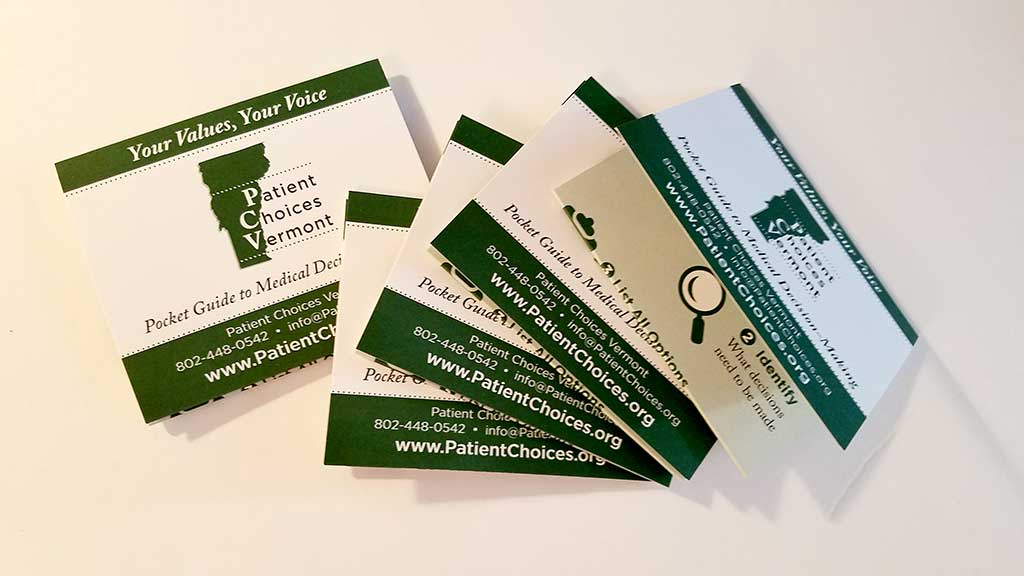|
…that’s up from 13 million when Vermont’s Act 39 was passed. Our persistent work in Vermont to make sure people have access to end-of-life choice is having an impact across the country. Nine jurisdictions have medical-aid-in dying laws providing end-of-life choice. Maine may soon become the eighth, having just voted to approve the Maine Death with Dignity Act. Twenty-four more states are considering the legislation. In their order of adoption, these seven include: Oregon, Washington, Vermont, Colorado, California, Hawaii, and New Jersey plus the District of Columbia. In 2009, Montana’s Supreme Court ruled that nothing in the state law prohibits a physician from honoring a terminally ill, mentally competent patient’s request by prescribing end-of-life medication. There have been bills introduced both for and against but none have yet been passed into law. Impact on End-of-Life Care: Since so many more people can now choose medical aid in dying, medical personnel and educators are paying increased attention to end-of-life choice and to counseling patients facing serious or terminal illness. Yet this is still the exception, not the rule. Several recent books delve into the problems patients face when the medical system assumes that extending life with more tests and more procedures is always the right approach. We provide a growing list of these books as well as Book Reviews online. Medical Decision-Making: While reading these books, you can’t help but begin to ask how would I make decisions differently to avoid spending my last months in medical procedures? Or, what is most important to me and how can I make my remaining time meaningful? The PCV team researched what resources are available to help us navigate medical decision-making. It was a complete surprise that we did not find a succinct resource for patients. So, we developed our own. We are pleased to introduce PCV’s new Pocket Guide to Medical Decision-Making This fold-up pocket guide is intended to be a concise reminder of the important questions to ask and information to convey to your medical and care team. Feel free to request bulk copies to distribute within your community. A one-sheet PDF flyer version is also available for download. Dementia Directive: In most of the community meetings we have hosted, people ask us whether they can direct the use of medical aid in dying in advance, specifically in the case of dementia or Alzheimer’s. The short answer is no. However there are steps you can take to help avoid prolonged life with severe dementia. We address that issue in another recent publication, The PCV page with the Guide to Advance Care Planning for Dementia also provides a link to an addendum you can add to your own advance directives. Community Work: We truly appreciate hearing from PCV’s supporters like this Vermonter who confirms that the video stories we produce make a difference: “I watched every video on the PCV website. It gave me great comfort and knowledge about what to expect as my husband and I navigated the Act 39 process.” -- C.H. Your PCV team continues to work on developing more informative publications and videos as well as providing community programs and medical education. The team includes doctors, nurses, writers, lawyers, researchers, and people with medical-aid-in-dying experience. We have a number of programs scheduled for the fall. If you would like to keep up to date, please sign up for our email newsletter. We only do fundraising twice a year, so this is our spring appeal... Please consider what End-of-Life Choice means to you. Your financial support is what enables our focused and dedicated work. As a community, PCV is successful because we remain focused, persistent, and dedicated—in it for the long haul. Every donation you provide, of any size, is deeply appreciated and carefully managed. There are several ways to provide your support, including stock donations and gifts honoring people for whom end-of-life choice was important. We are a 501(c)(3) non-profit, so your contributions qualify as tax-deductible. Please consider a donation of $60, $30 or if you are able, $125, $500, or $1,000. As one supporter recently says, “Act 39 allows us to replace fear and uncertainty with a sense of calm, greater peace and comfort near the end of life. Thank you.” With gratitude, Betsy J. Walkerman
President PS: Let us know if you would like extra copies of the Pocket Guide to Medical Decision-Making or PCV’s Vermonter’s Guide to End-of-Life Decision-Making.
2 Comments
Claudia Wulff
7/26/2019 06:37:10 pm
I am a 79 year old woman, living 9 months a year in VT. and the remaining months in CT. Having worked as a volunteer for many years in various nursing homes, I would not allow one of my dogs to spend their last years, months, or even days in some of the places I experienced. Often times people are kept alive because nursing homes and other medical facilities welcome the income received from the patient's live time savings. After these are exhausted, the state kicks in with minimum payments and social security. Along with that the quality of life and care declines accordingly. It is all about money!
Reply
Leave a Reply. |
Categories
All
Archives
July 2024
|
Proudly powered by Weebly



 RSS Feed
RSS Feed